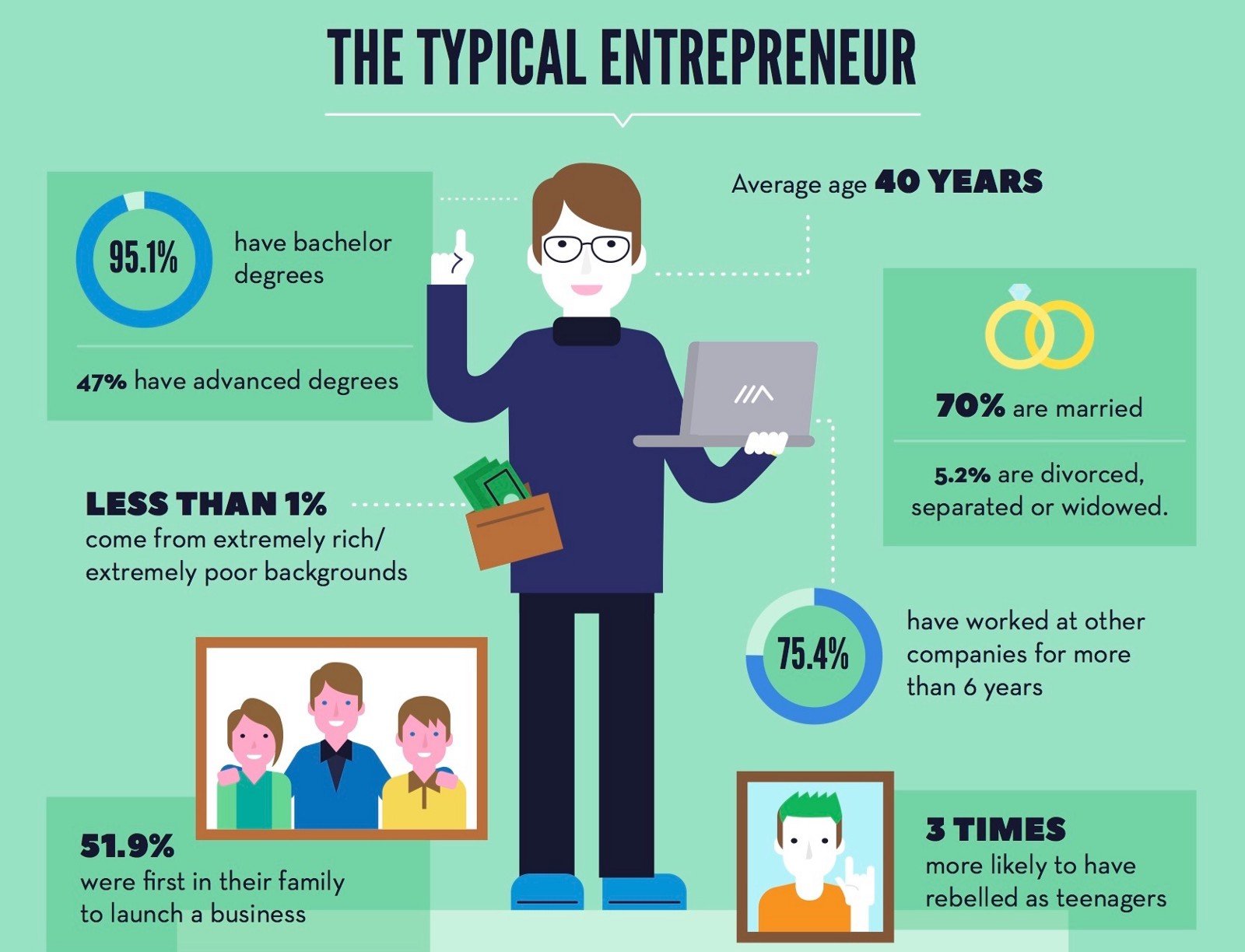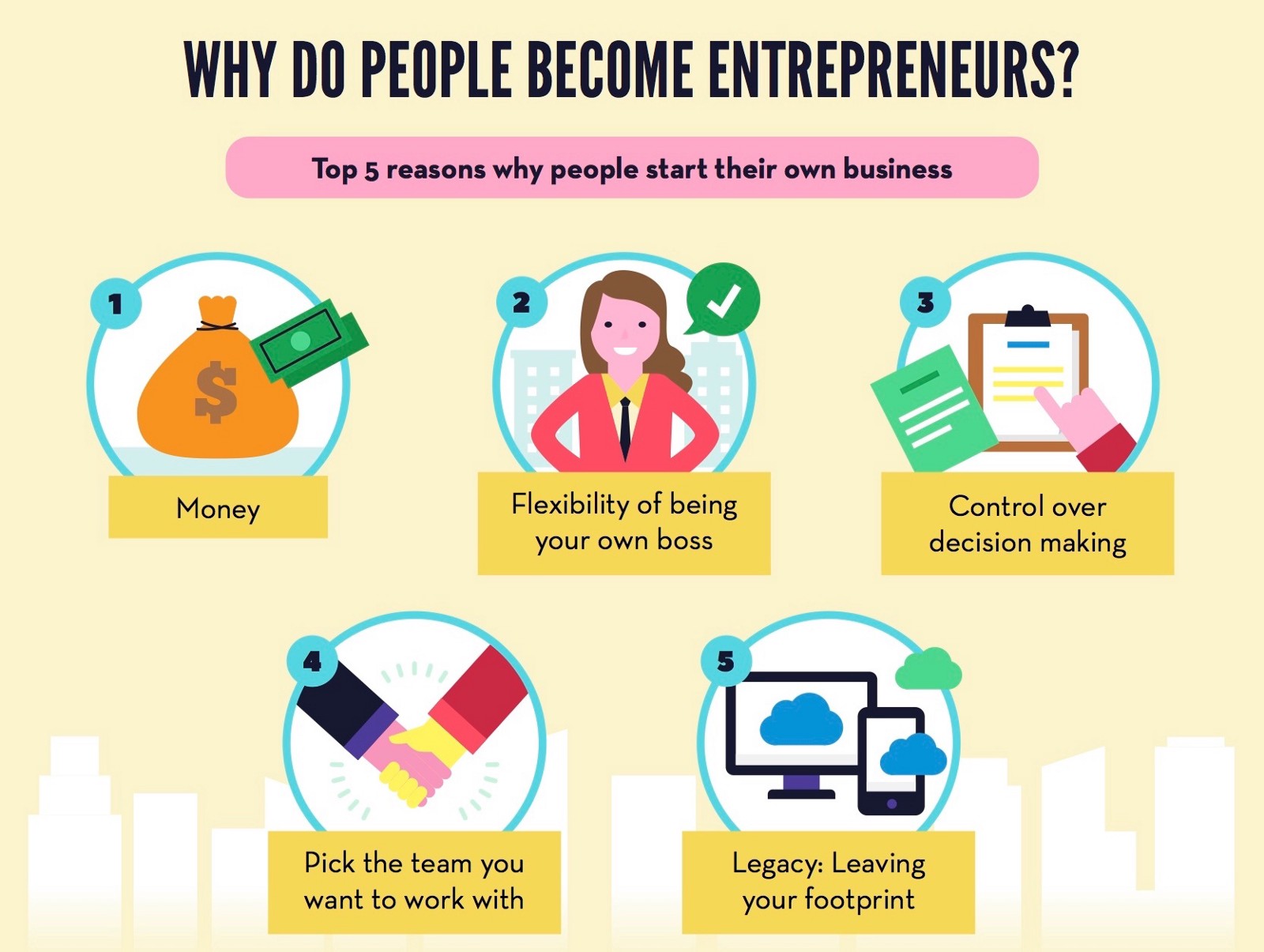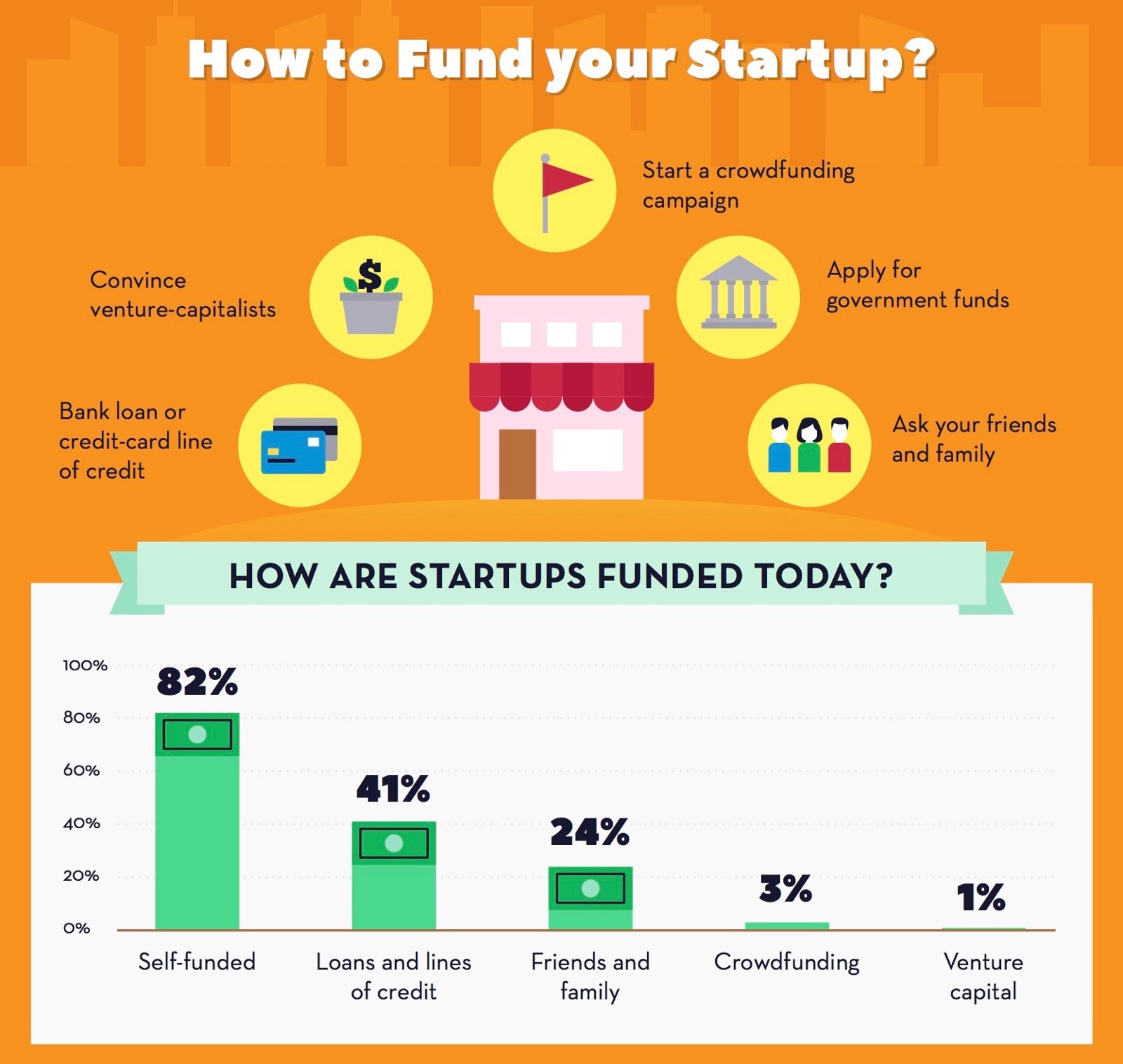Even inside the startup circles, the meaning of the word “entrepreneur” can be unclear. What does it mean to start a company, and what causes almost 50% of them to fail within 5 years? What is abundantly clear is that we lack a clear understanding of the small business market, and that will continue to impact our practices, our strategies, and our success.
In 2016, dealsunny.com released a comprehensive infographic on the state of entrepreneurship across the globe, highlighting 46 key facts. The depicted statistics range from the sheer number of entrepreneurs in the world to the most common reasons they start to the most common reasons they fall apart.
Here are the key takeaways:

1 in 18 people owns their own business. More than you thought, right? Entrepreneurship expands far beyond the cliché of the tech startup working in a small apartment in California. Instead, we’re immersed in a geographically and industrial diversity of innovation. Despite this diversity, however, the vast number of 400 million small business owners share the common need of knowing how to run and grow their business.

Less than 1% of entrepreneurs come from extreme financial backgrounds. Small business owners are not dependent on an upbringing of significant financial reserves nor must they be motivated by significant financial need. Instead, we see that funding is possible without auspicious affluence. Although more and more young people are starting businesses with the advent of the internet, the average entrepreneur is still close to 40 years old and probably has nested away some financial resources before venturing out on their own.

Startups with two founders are the most successful. Finding a co-founder is akin to finding a romantic partner: you’ll be in it for the long haul, so choose wisely. Co-founders have the ability balance a visionary with business acumen and keep the small business on the path to success.

The top five reasons why entrepreneurs start their businesses are, in order, money, flexibility of being your own boss, control over decision making, the ability to pick the team you work with, and legacy. These undeniable motivators are often what sway the fence-sitters into the world of business ownership and remain strong guiding factors for us throughout our companies’ lifecycles. Knowing which factor is the driving force for any business can guide strategies and long-term planning.

82% of startups are self-funded. With the emergence of concepts like the lean methodology and the ease of modern market validation, startups can take fewer financial risks before seeing initial popularity in their markets. Whether in person, through social media, email capture, or otherwise, successful entrepreneurs are gathering proof of their market’s interest before needing significant capital.
And last but not least…
The top five reasons why startups fail are, in order…
- no market need
- running out of cash
- not having the right team
- too much competition
- pricing or cost issues.
Small business owners are failing not because their ideas are bad, but because they lack the ability to validate their ideas and learn quickly from their mistakes. Through the introduction of intuitive business planning tools (such as the Business Model Canvas), many of these problems could be overcome.
Find the full infographic along with source here.
*All of the above information was originally published here. We are grateful to dealsunny.com for their research and insights, which are not only well-designed and intriguing, but also will guide our company in supporting the small business sector.




